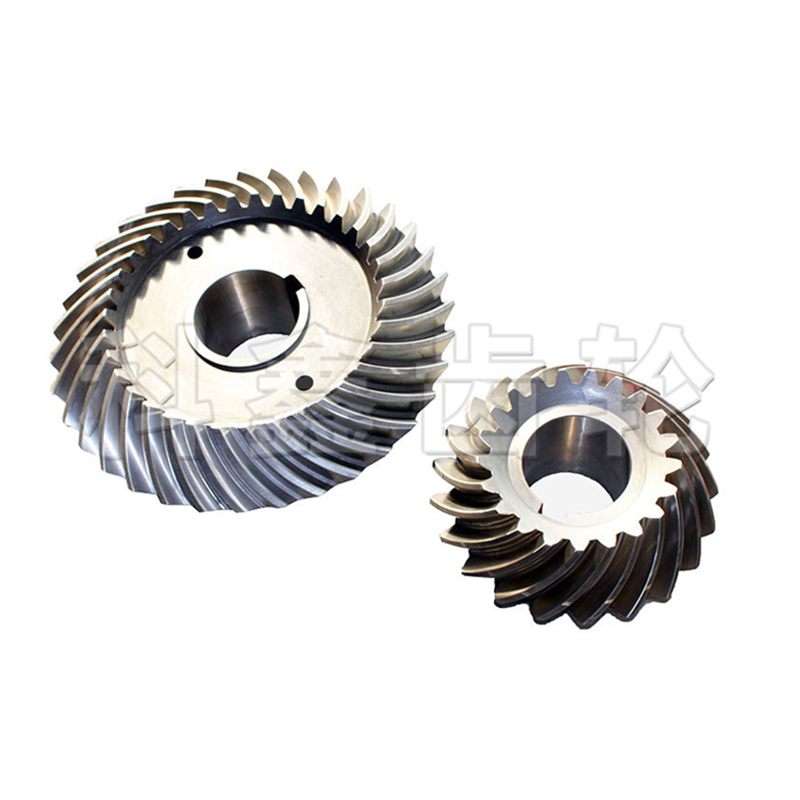In the realm of mechanical engineering, the selection of gear types for high-speed applications is a critical decision that directly impacts performance, efficiency, and reliability. One type of gear that has garnered significant interest in recent years is the spiral bevel gear. Traditionally favored for their ability to transmit power smoothly and quietly at high speeds, the question arises: Can spiral bevel gears truly meet the demands of modern high-speed applications?

Before delving into their suitability for high-speed applications, it's imperative to grasp the fundamental characteristics of spiral bevel gears. Unlike their straight-toothed counterparts, spiral bevel gears feature curved teeth that spiral around the gear's axis. This unique design facilitates smoother engagement, reduced noise, and improved load distribution compared to straight bevel gears.
Factors Influencing High-Speed Gear Applications
Precision Engineering
High-speed applications demand meticulous attention to detail in gear manufacturing. Any imperfections, even at a microscopic level, can lead to catastrophic failure. Spiral bevel gears, with their intricate tooth geometry, require advanced machining techniques to ensure precise meshing and minimal backlash.
Material Selection
The choice of material for gear construction is paramount in high-speed applications. Metals with high strength-to-weight ratios, such as alloy steels or titanium, are often preferred for their ability to withstand the stresses imposed by high rotational speeds while maintaining dimensional stability.
Lubrication and Cooling
Efficient lubrication and cooling mechanisms are vital to dissipate heat generated during high-speed gear operation. Proper lubrication not only reduces friction and wear but also helps mitigate the risk of thermal degradation, ensuring prolonged gear life and optimal performance.
Suitability of Spiral Bevel Gears for High-Speed Applications
1. Smooth Operation
The spiral tooth profile of bevel gears promotes gradual engagement, resulting in smoother operation and reduced vibration, even at high speeds. This inherent characteristic minimizes noise generation and enhances overall system efficiency.
2. Enhanced Load Distribution
The curved teeth of spiral bevel gears enable more uniform load distribution across the gear face, reducing localized stress concentrations. This feature is particularly advantageous in high-speed applications where dynamic loads are prevalent, mitigating the risk of premature gear failure.
3. Improved Efficiency
The efficient power transmission capabilities of spiral bevel gears translate to higher system efficiency, reducing energy losses and enhancing overall performance. This is especially critical in high-speed applications where maximizing power transfer is essential for optimal operation.
Conclusion
In conclusion, while the utilization of spiral bevel gears in high-speed applications presents certain challenges, their unique design characteristics and inherent bevel gear advantages make them a viable option for demanding engineering requirements. Through precision engineering, meticulous material selection, and robust lubrication strategies, the performance potential of spiral bevel gears can be fully realized, ensuring reliable operation and optimal efficiency in high-speed gear systems.



Comments
All Comments (0)